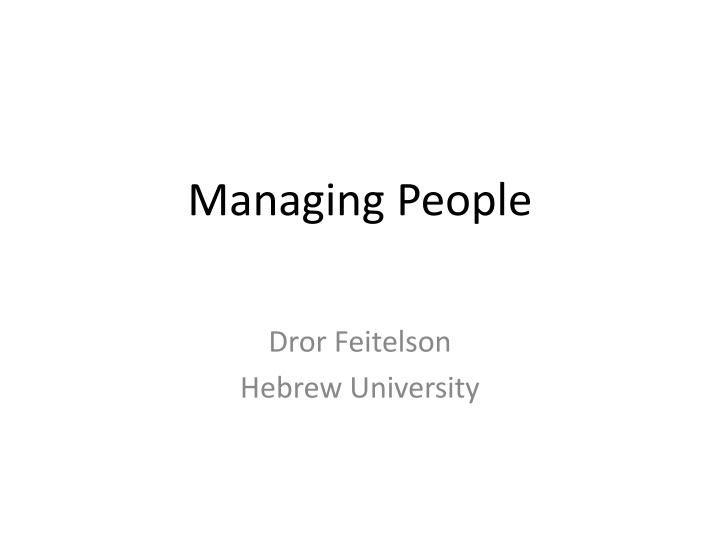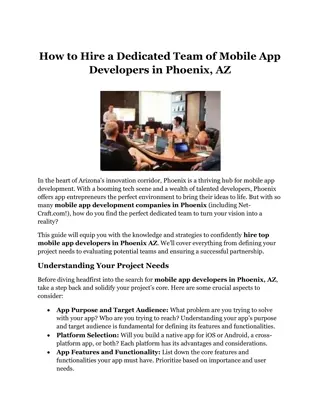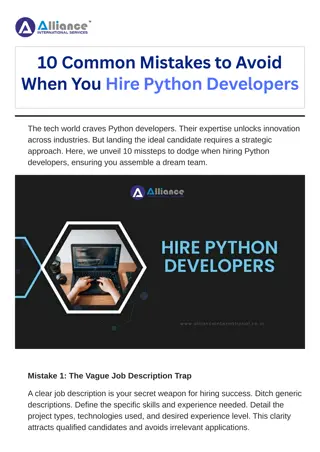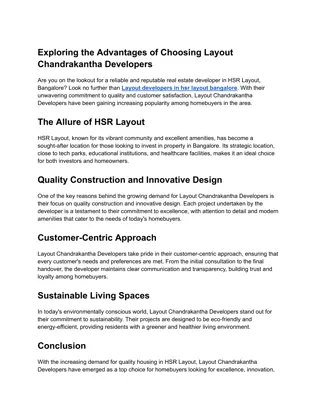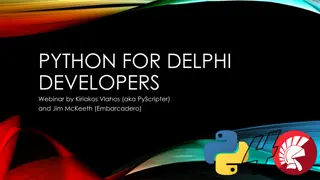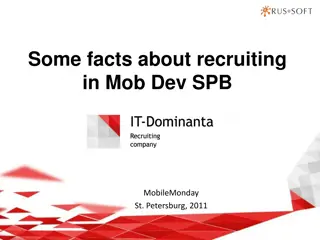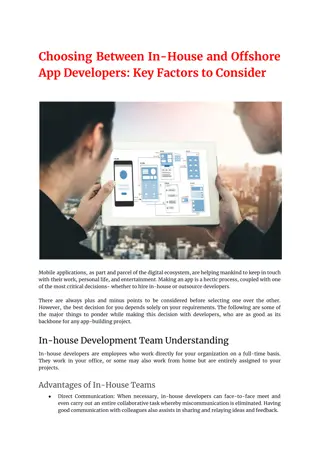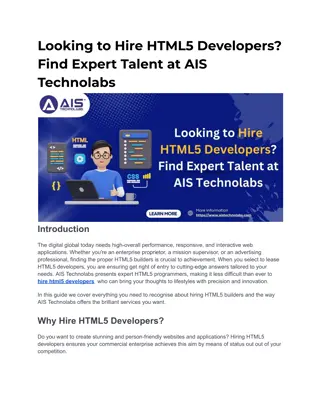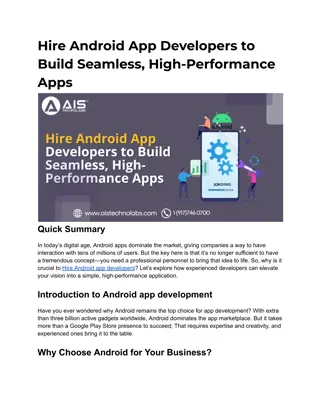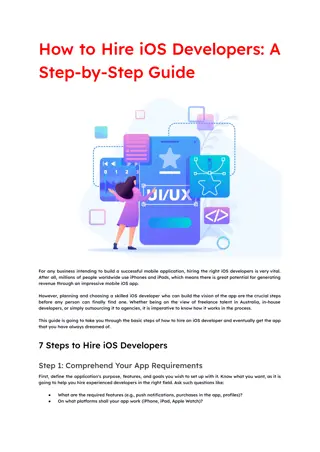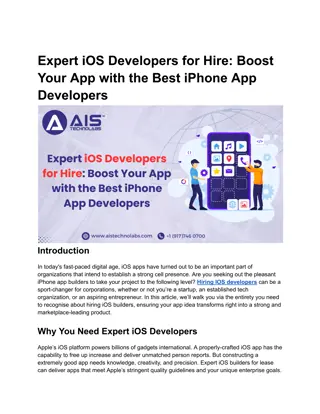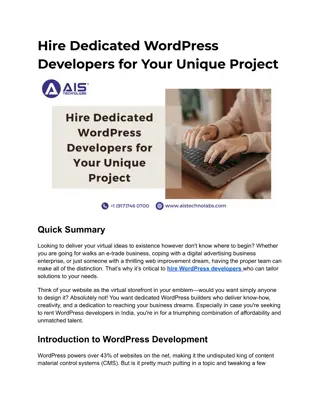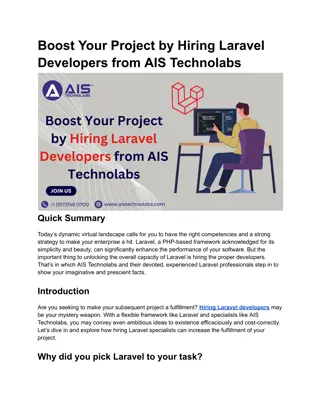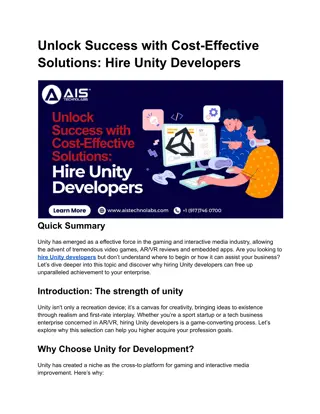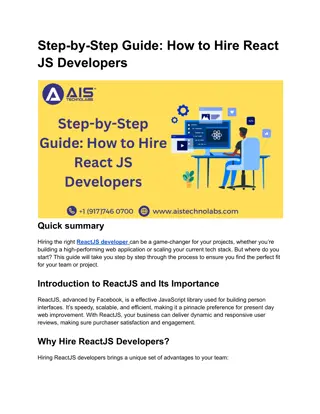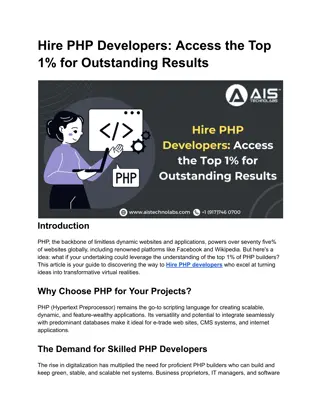Managing People and Understanding Developers
Ineffective management towards developers is often due to a focus on technology over understanding human complexities. This can be detrimental as developers are individuals with emotions, values, and opinions. Trust, proper hiring processes, and thoughtful approaches to interviews are key in maximizing team potential and productivity.
Download Presentation

Please find below an Image/Link to download the presentation.
The content on the website is provided AS IS for your information and personal use only. It may not be sold, licensed, or shared on other websites without obtaining consent from the author.If you encounter any issues during the download, it is possible that the publisher has removed the file from their server.
You are allowed to download the files provided on this website for personal or commercial use, subject to the condition that they are used lawfully. All files are the property of their respective owners.
The content on the website is provided AS IS for your information and personal use only. It may not be sold, licensed, or shared on other websites without obtaining consent from the author.
E N D
Presentation Transcript
Managing People Dror Feitelson Hebrew University
Humans vs. Technology Developers are humans Humans are complicated Most managers don t know how to deal with humans They are trained in technology Technology is simpler So they focus on the process and technology This can lead to inefficient conduct toward developers
Developers are Human They have emotions They can get insulted They want satisfaction in their work They want to have fun They have values and identity They don t like being told what to do They have opinions In fact, you hired them for the (technical) knowledge that leads to (technical) opinions Knowledge workers, not fast food workers
Developers are Different Production workers Knowledge workers Headquarters: Develop product and procedures Headquarters: Create business opportunities Plant manager: Make sure workers follow plan Project manager: Create conditions for workers to work Workers: Workers: Be creative A peg in the machine
Trust Knowledge workers are their own bosses Motivated and want to succeed Have higher quality standards than market wants (prefer to invest in quality over time to market) Don t react well to monitoring and micromanagement Managers should pick the best person for the job And then trust them to do the job
Hiring Initial Filtering Use resumes to filter out obvious non-fits E.g. no programming experience Consider technical experience / focus May be important if hiring for short term specific project Largely irrelevant if hiring for long-term employment use phone call for screening Get details of experience (is candidate passionate about previous projects?) Conversation about non-trivial technical issue
Hiring Interview Trivia / trick questions are easy but useless No correlation with effective developers Trivial programming question Should not require thought Complicated programming / design question See thought process tackling the problem Don t expect full answer Look for people who are smart and get things done Joel Spolsky, Guerrilla guide to interviewing
Hiring Portfolio Even in an interview you can t really see a developer develop code As a candidate, it could pay to present what you have already done Project done at work / during studies / for yourself Explain design considerations and decisions Combine high-level overview with low-level detail Exhibit your passion for your work
Evaluation Developers need to be evaluated Promotions, pay raises Evaluation should be based on performance data Using data for personal evaluation incentivizes lying about it What is your basic business: evaluating developers or producing quality software?
Retention and Turnover Hi-tech workers switch jobs every few years Improve pay and status Learn new stuff, do new things Turnover is horrible for companies Invested time and money in hiring Training recruits until they become effective Loss of company / project knowledge Short-term viewpoint of employees Developers promoted to management before they re ready
Reducing Turnover Invest in your developers Initial training and continuous retraining Capacity to grow within the company Support continued education (MSc) No job is a dead end Avoid arbitrary annoying actions Don t move people like they were furniture Create a sense of community Foster culture where people are expected to stay
Pay The easiest knob to turn in employer- employee relations Simplistic economics / management theory Want someone? Give them money Real people may have other (sometimes more important) considerations Working together with friends Sense of achievement Feeling appreciated
Jelled Teams The whole is greater than the sum of its parts Aligned goal of advancing the project For the sake of succeeding, not for the company s profits Having fun working together Not clear how to make it happen Easy to make it break apart Too much micromanagement and bureaucracy Arbitrary deadlines and reduced quality
Work Environment Bottom 25% 4.25 m2 29% yes 19% yes 10% yes 19% yes 76% yes Factor Top 25% 7.25 m2 57% yes 62% yes 52% yes 76% yes 38% yes Dedicated work space Acceptably quiet? Acceptably private? Can silence phone Can divert calls Often interrupted needlessly Ranking by performance in coding, DeMarco & Lister, Peopleware p.49, 1980s
Flow Creative work requires concentration and immersion Enter a state of flow (get in the zone ) Time to think Interruptions break concentration and immersion And it takes time (15 min.) to get back
Flow What you can do: Put on earphones Mute phone; disable email/twitter notifications Work from home Respect other people s space and quiet Process / management Scheduled communication (daily scrum meeting) Establish no-meetings days / mornings Raise awareness by monitoring interruptions
Cubicles The worst of all worlds: Isolated from team No privacy or protection from noise and interference Alternatives: Group spaces tailored by group Offices with doors
Office Space Windows for view and light Most office workers spend all daylight hours in windowless spaces Doors for privacy and protecting flow Outdoor spaces Public spaces Formal and informal meetings Eating together
FogCreek New Offices Every developer, tester, and manager has a private office with a closing door and a window to the outside Motorized height-adjustable work surface Standard 30 computer screens 20 electric sockets behind each desk Glass whiteboards easy to clean Coffee bar and lunchroom Catered lunch every day, everyone eats together Library with reclining chairs for naps Huge salt-water aquarium https://www.joelonsoftware.com/2008/12/29/the-new-fog-creek-office/
The Future: Be Like China?? Wechat workers resting in office
